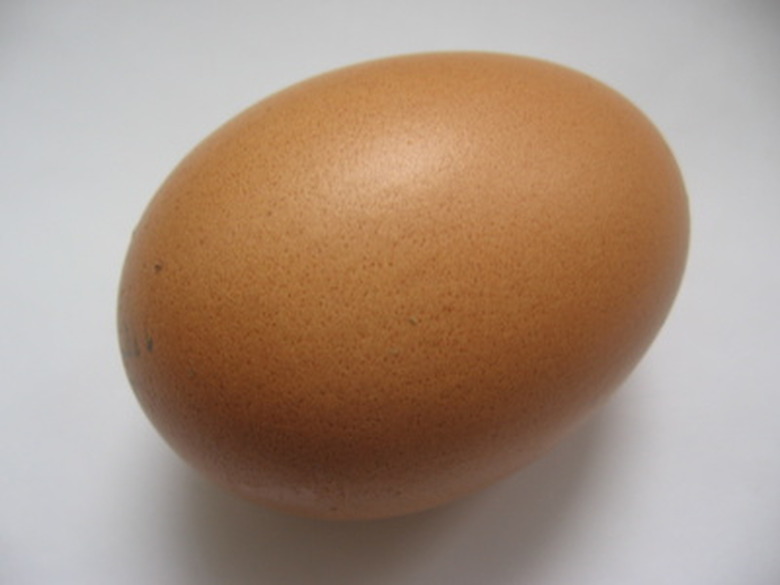How Much Salt Does It Take To Make An Egg Float In Water?
What is Density?
What is Density?
Density is technically defined as the mass of an object divided by its volume. Essentially, it is a measure of how tightly packed the molecular structure of an object is. Density is why a cubic inch of lead will weigh more than a cubic inch of helium, and density is why certain objects will float and others will sink in water.
What is Buoyancy?
What is Buoyancy?
Buoyancy is formally laid out in the Archimedes principle, which says that "an object is immersed in a fluid is buoyed up by a force equal to the weight of the fluid displaced by the object." What this means is that in order for an object to float in any liquid, the weight of the volume of the liquid displaced by the object must be greater than the weight of the object itself.
What Will Make an Egg Float in Water?
What Will Make an Egg Float in Water?
Water has a density of one. To determine the density of the egg, we would have to first weigh the egg. Then, if we put the egg in a graduated cylinder filled with water and measured the amount of water displaced, we can find its exact volume. By dividing the mass by the volume we can find the density. The density of the average egg will be slightly greater than that of water, so it will sink. To make the egg float, we have to make the water more dense by adding salt. For 1 cup of water, adding 3 tbsp. of salt should be about enough to make the egg float.
References
Cite This Article
MLA
Koenigsberg, Aaron. "How Much Salt Does It Take To Make An Egg Float In Water?" sciencing.com, https://www.sciencing.com/much-make-egg-float-water-5200473/. 24 April 2017.
APA
Koenigsberg, Aaron. (2017, April 24). How Much Salt Does It Take To Make An Egg Float In Water?. sciencing.com. Retrieved from https://www.sciencing.com/much-make-egg-float-water-5200473/
Chicago
Koenigsberg, Aaron. How Much Salt Does It Take To Make An Egg Float In Water? last modified March 24, 2022. https://www.sciencing.com/much-make-egg-float-water-5200473/
